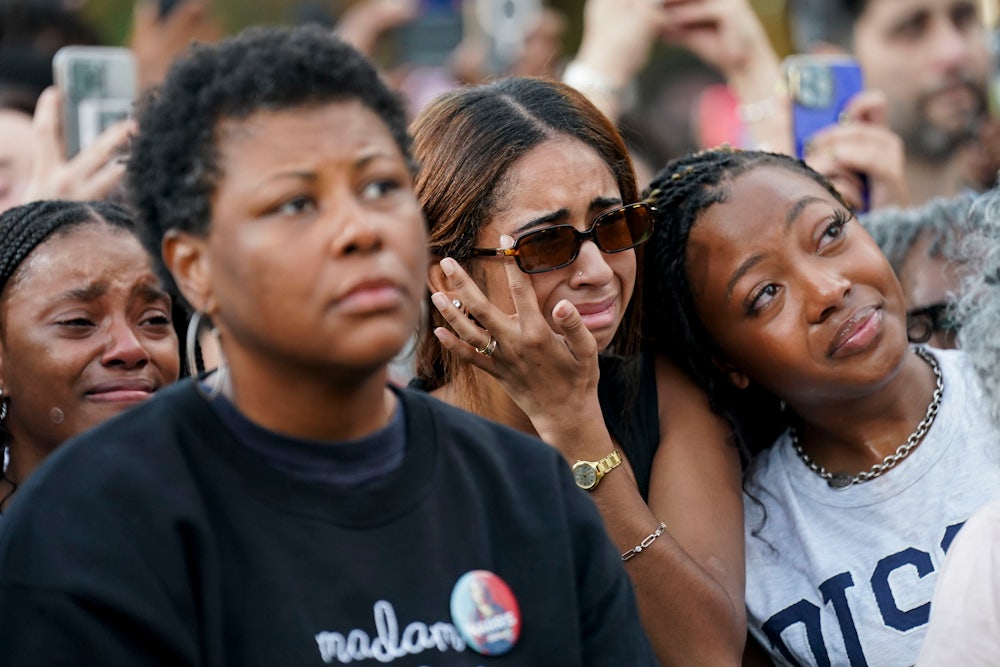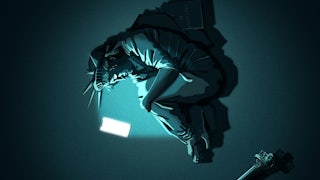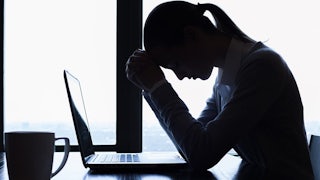Last week, the same sentiment echoed across the media spectrum: Progressives are deeply emotional and unserious about the election results. Fox News blared it out, while self-styled truth-tellers on the left implied it. Colleges offered yoga sessions, therapy dogs, and lighter workloads in response. Conservative student groups snarked, “Universities are producing a generation that can’t face the uncertainties and challenges of life.” (This was a movement that responded to its own election losses by storming the Capitol.) Meanwhile, Democratic officials and pundits rushed into the political vacuum, attributing Harris’s loss to excessive empathy. As a consultant told Maureen Dowd, “We’re so worried about alienating one or another cohort in our coalition that we don’t know what to say.”
In this environment, to call for self-care feels like bringing a sheet mask to a gunfight—an absurd response reminiscent of 2016’s painfully condescending axiom, “Protesting is the new brunch.”
But the urgency of this moment demands inaction as much as it does action. We need a powerful movement, and we need stillness. We’re not going to be much good to or for each other if we can’t be good to ourselves.
Audre Lorde brought “self-care” out of the medical context in 1988, framing it as a radical act of compassion amid struggle. A former Black Panther, she was elaborating on their call for self-preservation, a vital component of their holistic approach to self-defense. After all, “by any means necessary” encompassed both arming themselves and free lunch programs. Over the decades, however, self-care evolved into a pillar of capitalism—an industry rather than a practice, synonymous with indulgence rather than rest. Dissent neutered into a commodity, once again.
Liberating these ideas from the lifestyle brands that have claimed them as their marketing cri de coeur is worth the effort. The version of self-care Lorde and the Panthers evangelized is radical because it’s inextricable from community. You recover while others work so that they can recover while you work. Sometimes you rest together, because what is resistance but not moving when They tell you to? There’s a reason racists responded violently to civil rights activists occupying their space in places of leisure, when Black people sat down at counters instead of bussing them. Work stoppages are the most powerful collective tools available to slow the grinding maw of capital. Tricia Hersey’s Nap Ministry makes the seductive argument that rest is praxis.
My own heartache tells me that Trump’s reelection calls for doing something—it must! Oppression hasn’t just been threatened; it’s been promised.
So what now? The fear is real, and plans to hurt people have not even been made in secret. There was a whole book about it! We have to act to counter these designs. Plans are being made nationally and locally. There’s the People’s March on Inauguration Day. I know someone whose sister had already started buying property in Portugal; now, she’s planning to move. I checked Zillow for condos in my old stomping ground of Saint Paul, where I could call Tim Walz my neighbor if not my vice president. People are saying they’ll cut off relationships with Trump-supporting friends, family, acquaintances. News stories claim that American women are exploring South Korea’s 4B movement, where women intentionally remove themselves from romantic relationships and family-building—perhaps the last resort to avoid being caught up in the Trump-Vance vision of women as chattel.
Naturally, the chattering class has skipped the obviously emotional responses entirely, opting instead for self-serious dissections of the Harris campaign. You’re going to find little personal solace from the punditocracy, who in general haven’t spoken to normal human beings in years and take the emotional needs of ordinary people about as seriously as they took Project 2025 (which is to say, not at all).
Your feelings are real to you. However, the urges to escape, isolate, or change behavior to prevent the “bad thing” from happening again, as well as the dry dismissal of others’ emotional register—all of these are trauma responses. That doesn’t make them wrong; they’re just reactive rather than fully informed. Think about it like this: At the moment, the terrain feels tilted. You can’t find your bearings. In the truest sense, you feel lost.
Feel not alone! None of us (including especially the pundits) know exactly what happened to put Trump back in the White House. Centuries of racism and sexism top my list of hypotheses, but exactly how these forces shaped people’s choices isn’t clear. We don’t know to what extent voter disengagement was a function of disenfranchisement, apathy, disinterest, or even bigotry. My list of bad actors includes the obvious (Elon Musk, Russia) as well as The Washington Post and The New York Times, but I hope other journalists uncover more about the mechanics of this influence. Until we know more, the question of “what Democrats should do differently” might be the least productive thing we can discuss—though if that’s your idea of fun, go for it. Have some fun!
Because we don’t know exactly what happened, it’s not precisely clear what to do next. When it comes to organized protest and direct action, it’s always wise to curb the temptation to reinvent the wheel. Those wheels have been invented and are in place and have been spun by behind-the-scenes activists for decades. If you aren’t already doing that kind of activism, don’t rush in to join. It actually might be best if you don’t. Take a beat.
From my perspective, the only thing to avoid when planning “what now?” is making hasty, difficult-to-reverse decisions. Decide to move, but maybe don’t sell the house right away. And, for the love of God, don’t shift the entire liberal apparatus away from protecting vulnerable people (I mean, it was just starting to turn that way!). There’s nothing wrong with slowing down.
I’ve never loved the “re-filling the cup” metaphor (self-care as replenishing lost energy), but think of it this way: Are you refilling your cup just to walk around with it full until someone jostles it? Or will you share what you have and accept the gift of others if they offer it?
When we base self-care on community, we gain two things: the energy to push for change and—maybe more importantly—a lived reminder that freedom and justice are only the floor of robust social policy. There is no ceiling. Joy is the expansive, limitless area above.
I don’t presume to have the best advice for political leaders working now to set guardrails in place. But I feel pretty certain I want them to be well rested and eating healthily while they still can—you know, before RFK guts food safety laws. Yes, I wish there were more durable guardrails in place, but here we are.
I need the leaders who will counter Trumpism to take self-care seriously, along with the rest of us. Panic and trauma reduce our capacity to process information and narrow the spectrum of emotions we can experience. We make bad decisions under these conditions. The work of the anti-Trump coalition now is to expand our ability to take in data—especially data that’s uncomfortable—and to broaden our emotional range beyond pain, sorrow, regret, and fear. If we don’t seek out pleasure, comfort, companionship, and laughter, numbness becomes our only protection. And fascism thrives when we are dead inside.
And it should be said, nothing deadens the soul more than the feeling that you have done something to deserve this. Banish these feelings. Take the advice of Anthony Hopkins’s character from the 1997 movie The Edge, about three men who end up stranded in the Alaskan wilderness after a plane crash, helpfully summarized here so you do not actually have to watch the whole movie.
Charles Morse: You know, I once read an interesting book which said that most people lost in the wilds, they, they die of shame.
Stephen: What?
Charles Morse: Yeah, see, they die of shame. “What did I do wrong? How could I have gotten myself into this?” And so they sit there and they … die. Because they didn’t do the one thing that would save their lives.
Robert Green: And what is that, Charles?
Charles Morse: Thinking.
Authoritarianism works best when we’re too busy just surviving to do anything else. Repression counts on our being too exhausted to do anything but exist in isolation, because a cared-for population has the capacity to organize and resist. And Trumpism depends on an opposition so steeped in shame and despair that you forget the bounteous wonder of the brain in that head of yours and the love for other people that resides in your heart.
Being overwhelmed right now is a natural response, but what you really need to move forward can be simple. Here’s the list I tick off: Have I eaten? Have I slept? Have I had water? Have I taken my meds? Have I been kind or gentle to another living thing, whether a person, an animal, or a plant? Have I made art or consumed it? Have I taken a deep breath?
Take care of the body you’ve been given; take extra care with your mind; take the most care of all with your heart. We need every part of you for what’s coming.






